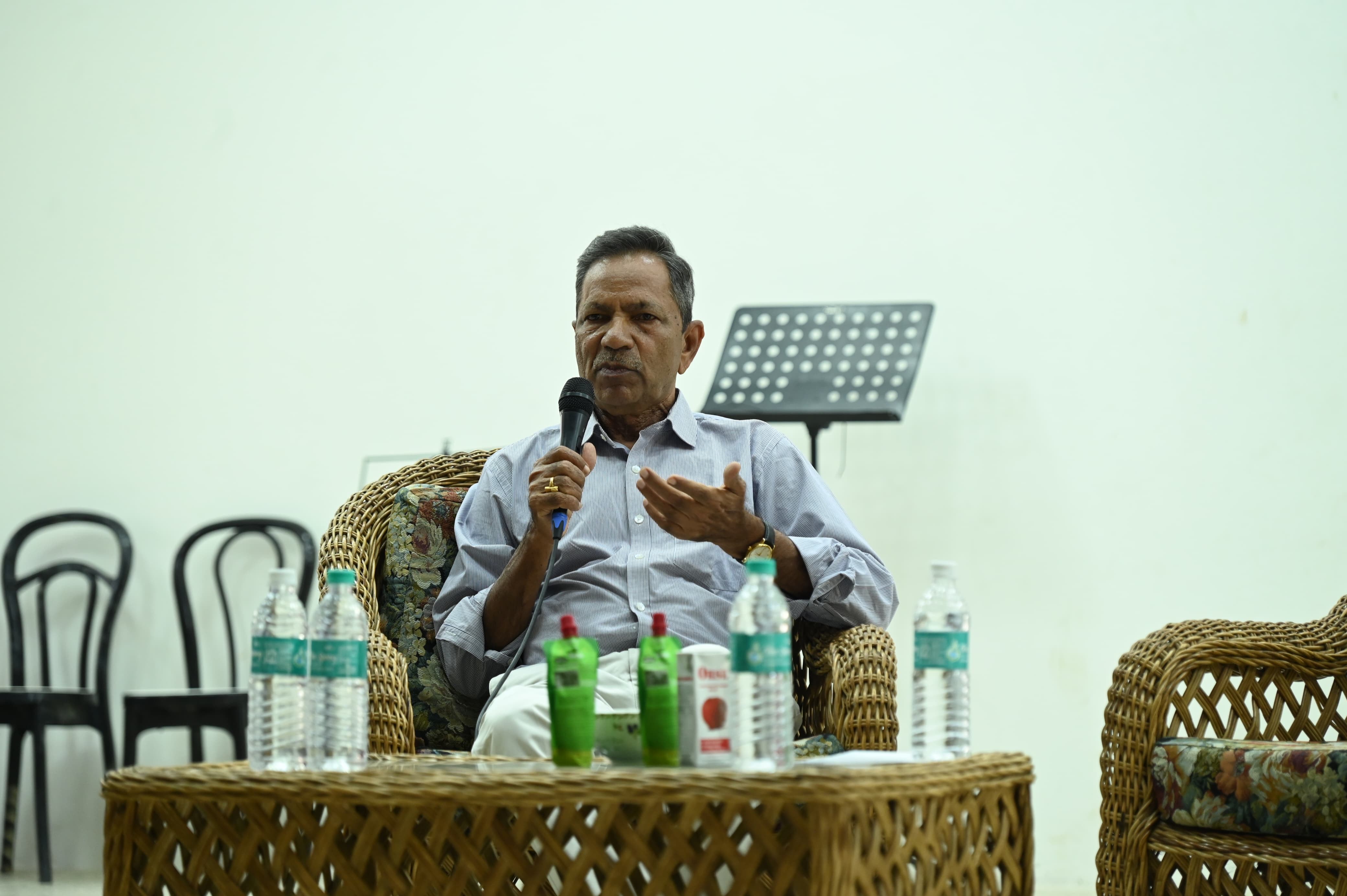MONDAY, APRIL 28, 2025
- Home
- Patkai Christian College hosts lecture on India-China relations
Patkai Christian College hosts lecture on India-China relations
Published on Apr 25, 2025
By EMN
Share

Prof. GVC Naidu speaking on the evolving dynamics of India-China relations at Patkai Christian College on Friday.
- DIMAPUR — The Political Science department of Patkai Christian College (PCC), Chümoukedima, organised one-day lecture exploring the evolving dynamics of India-China relations in shifting global and regional orders on April 24 at Bundrock auditorium.
- Addressing a packed auditorium of students, faculty, and guests, Prof. GVC Naidu, former founding chairperson of the Centre for Indo-Pacific Studies at Jawaharlal Nehru University, New Delhi, described the India-China relationship as a subject of “evergreen relevance” against the backdrop of a rapidly transforming world order.
- “The United States has long been the most dominant geopolitical force, but global power is shifting,” he noted.
- “Today, China has risen as the world’s second-largest economy—something few anticipated happening so swiftly. And India is not far behind, emerging steadily as a major global player”.
Also read: Jamir proposes measures for overall growth of Sainik School Punglwa
- Highlighting the strategic importance of the Indo-Pacific region, the professor remarked on the increasing focus it receives due to its central role in global trade and security.
- “The Indian Ocean has re-emerged as a hub of economic and political activity”, he said, stressing the region’s growing geopolitical weight.
- Prof. Naidu also reflected on the historical arc of India-China relations, stating that the two civilizations have shared nearly 2,000 years of largely peaceful engagement.
- “Apart from the 1962 war, which was rooted in complex historical and territorial issues including British colonial legacies and the Dalai Lama’s flight to India, our relationship has been predominantly cooperative,” he said.
- He urged policymakers and scholars to view current tensions through a broader strategic lens.
- “Regional and global dynamics must guide our approach. There’s a pressing need to compartmentalise political disagreements from economic cooperation if both countries are to thrive and contribute to global stability”, he added.
- Earlier, Dr. Zhoto Tunyi, head of the department, delivered the welcome address, underlining the topic’s urgent relevance in the current geopolitical climate.
- The session concluded with a lively Q&A segment with assistant professor AG Samuel as the moderator.
- Dr. Yanbeni Kikon, assistant professor and event coordinator, proposed vote of thanks.

